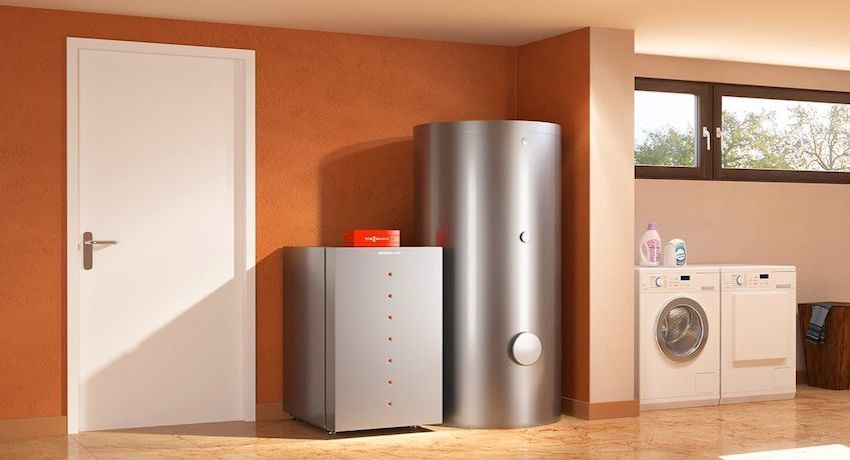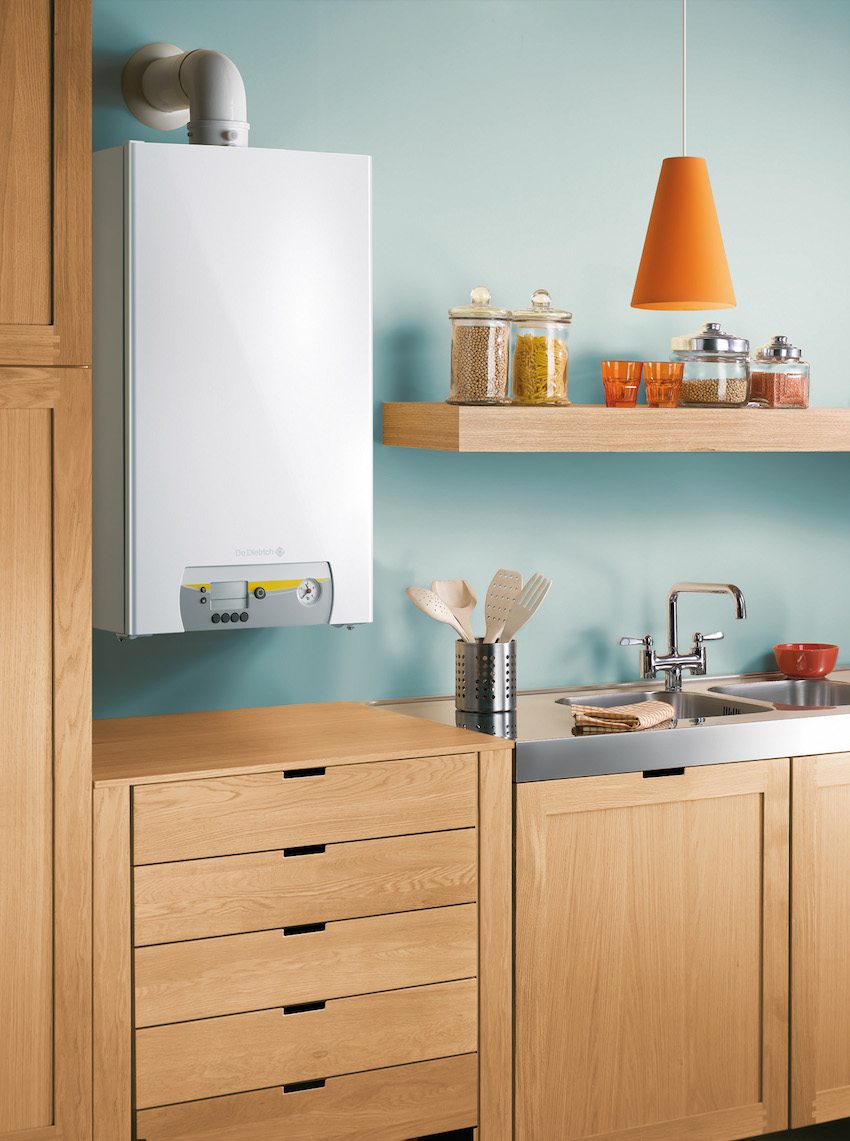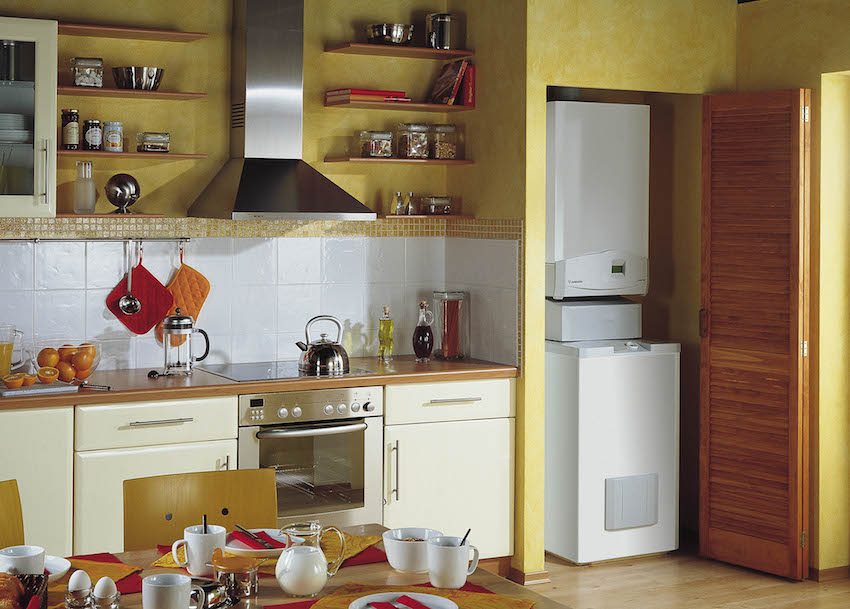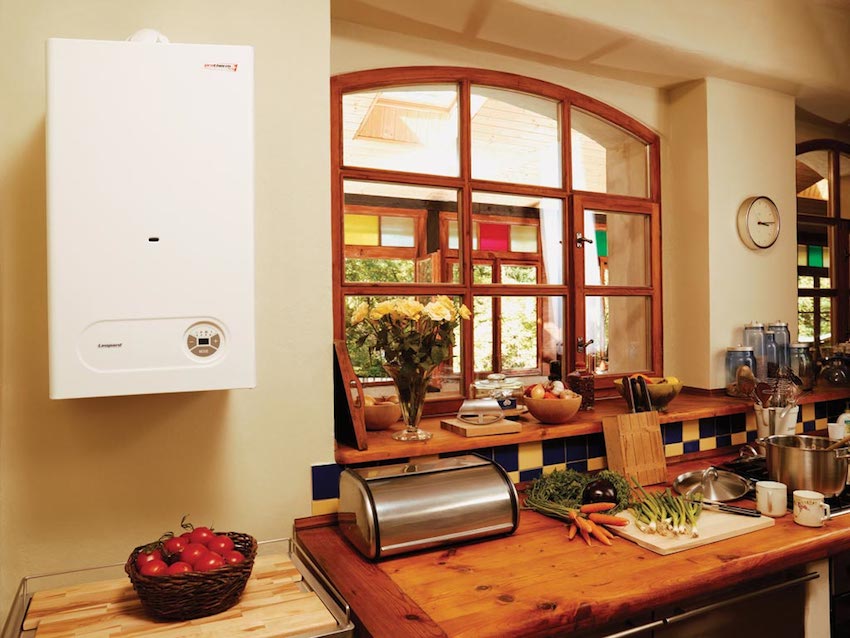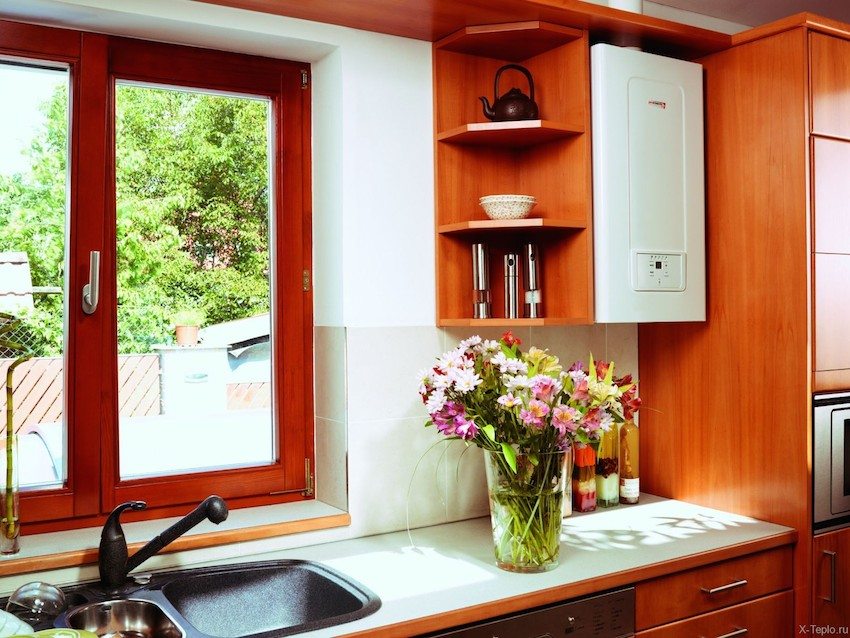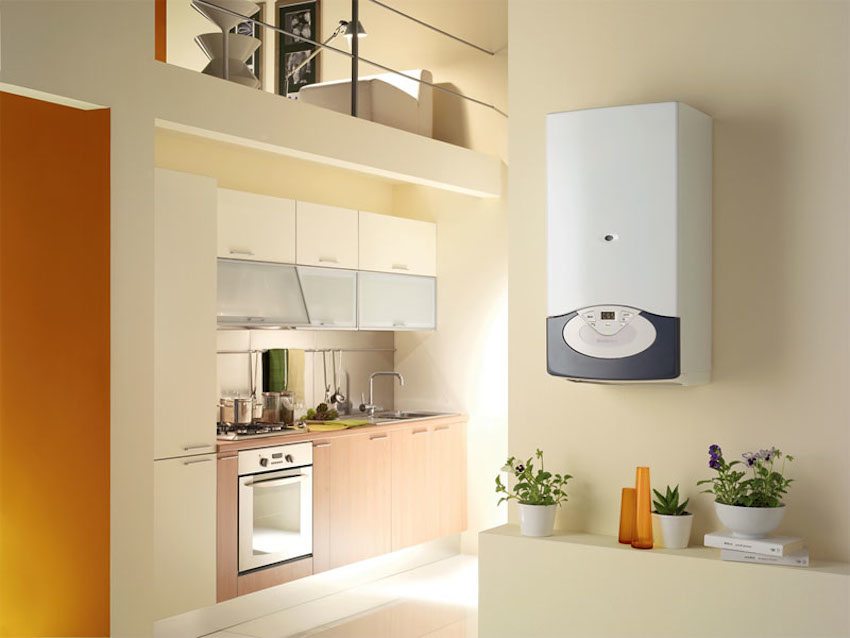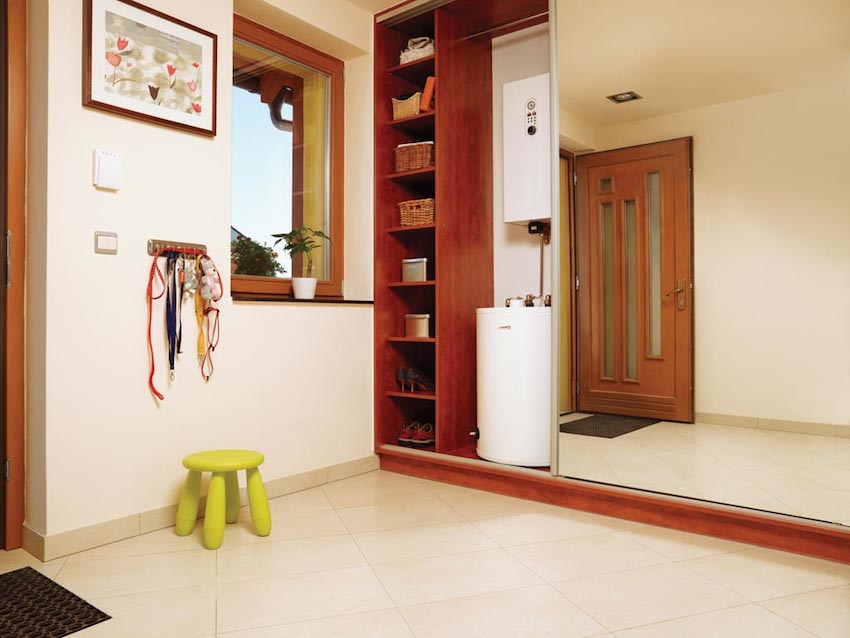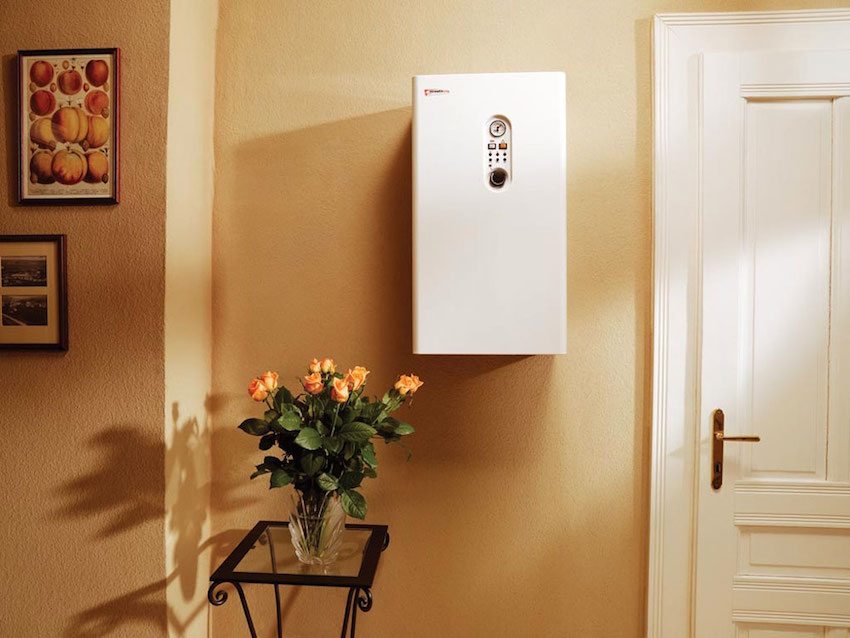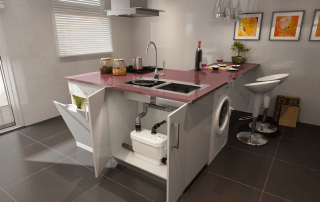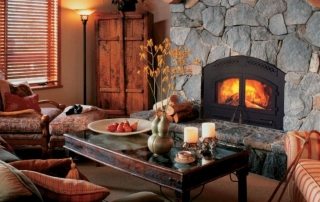Creating comfortable living conditions in a private house is unthinkable without installing a modern heating system. It must be safe, efficient and easy to maintain. The energy source must be available everywhere. Autonomous systems on electric energy fully comply with these conditions. Since the cheaper source, gas, is not present in all places, then often the only possible option is an electric boiler for heating a private house, the prices and types of which we will consider in this article.
Content [Hide]
Electric boiler for heating a private house, features
The principle of operation of electric boilers is based on the property of conductors to release thermal energy when an electric current passes through them. In general terms, the device of electric boilers is simple. The heat exchanger, with the water circulating through it, contains electrical elements. They operate from a 220 V household network, although there are powerful models that also operate from a 380 V industrial network. The heat exchanger is connected to the system home heating through the inlet and outlet fittings. The heated water is circulated naturally or with a centrifugal pump. The whole process is controlled by automation.
Due to the absence of flame and strong heating, electric boilers have a number of advantages over other heating equipment:
- there is no need for a chimney and pipe;
- no noise;
- oxygen is not consumed in the room;
- small dimensions;
- no risk of gas leakage;
- low price;
- ease of maintenance and management.
At the same time, electric boilers for heating a private house are not without disadvantages:
- high cost and frequent power outages;
- sensitivity to voltage drops in the network.
If it is necessary to heat a large area, a more powerful electric boiler is needed, which, in addition to the high consumption of electricity, also entails the need for additional approvals with the electricity supplier. In some cases, the installation of a powerful boiler is unacceptable due to the limitation of the load on the electrical network.
Useful advice! No need to chase small boilers. Downsizing is always done at the expense of quality. The load on the heating elements increases and they fail faster.
Electric boiler for heating a private house, prices and types
Depending on the type of heating elements, all boilers are divided into three main types.
Boilers with heating elements
As heating elements, heating elements of plate or tubular types are used. They are placed directly in the heat exchanger. One device can contain up to 8 elements of 2 kW each. All of them are connected in steps. This can be controlled automatically or manually. Some boilers are double-circuit, which allows you to heat not only the coolant, but also water for domestic needs. The simplicity of the device, the ability to use any liquid (water, antifreeze or oil) as a heat carrier and low cost make this device the most popular among users. Scale formation and large dimensions are the main disadvantages of these boilers. Prices for this type of boilers start at $ 50. and increase depending on power, complexity of electronics and manufacturer up to 1000 cu.
Electrode devices
Such electric boilers for heating a private house work on a different principle. On the electrodes placed in the heat exchanger, a potential difference from the alternating current is created. Since salts are always dissolved in water, it is a good electrolyte with a certain electrical resistance. The current passing through such a medium causes it to heat up. The advantages of this type of heaters include: small size, simple design, safety and low price (from $ 60). Disadvantages: the water must contain salts that increase its resistivity, the electrodes must be changed frequently due to their gradual dissolution.
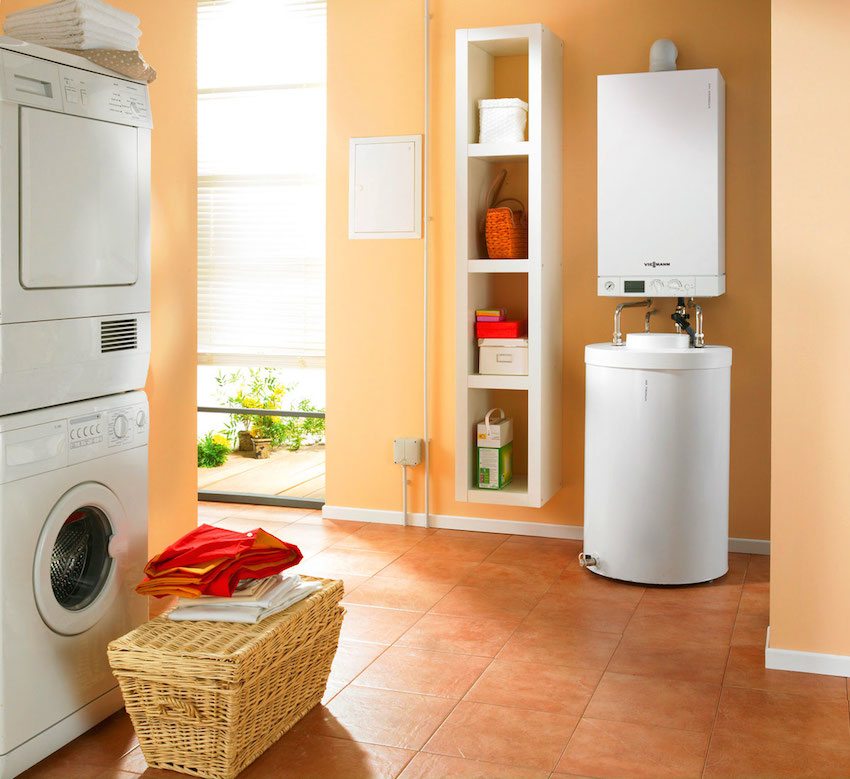
Electric boilers are double-circuit. They heat not only the coolant, but also the water in the household water supply.
Induction devices
They are much more complex than other boilers. The design has an induction coil, which is a wire wound around a dielectric. It has a metal core inside. When an electric current passes through the coil, electromagnetic induction occurs, which creates a potential difference across the core, heating it. This design allows you to significantly increase the efficiency of the entire device. The advantages of this device are: low power consumption, indifference to the type of coolant, durability, non-susceptibility to scale formation. The disadvantage of such an electric boiler for heating a private house is the price. It is an order of magnitude higher than that of other types of heating devices and starts at $ 450. for the simplest devices. The cost of powerful and complex devices can reach 3000 USD. and more.
Useful advice! If possible, you need to choose a boiler in a good configuration, since some elements are simply necessary. It is better and cheaper to buy everything in the kit than to buy an expansion tank, valve, protection relay or filter later.
Additional options for electric boilers
All existing types of electric boilers may have additional options. The most requested option is the ability to manually adjust the power. Even the cheapest copies have it. More expensive devices are equipped with an automatic power control system and shutdown in case of overloads. Additional features include the following:
- automatic drainage of water when the temperature is turned off and the temperature drops to values close to 0 degrees;
- remote temperature sensor for automatic control of the boiler operation depending on the ambient temperature;
- protection against an increase or decrease in pressure in the system;
- built-in centrifugal pump;
- the ability to heat water for the domestic water supply system.
Depending on the presence or absence of certain additional options in electric boilers for heating a private house, their price can vary over a very wide range.
Power calculation and connection of electric boilers
Before you buy a boiler, you need to decide on its power. After all, its deficiency will not allow heating the housing efficiently enough, and the excess will result in unjustified electricity costs. There is a simple formula for calculating the power of boilers:
W cat. = (S * Wud.): 10,
where W is a cat. Is the required boiler power, S is the area of the room, Wsp. - specific power of the device per 10 m2... This indicator differs for different climatic zones:
- for regions with a temperate climate - 1.2 - 1.5 kW;
- southern zone - 0.7 - 0.9 kW;
- northern zone - 1.5 - 2.0 kW.
Using this formula, we calculate the required boiler power for a room with an area of 100 m2 in a house located in the middle lane: W cat. = (100 * 1.5): 10 = 15 kW.
Useful advice! Those who do not like to bother themselves with formulas and calculations can simply divide the area of the room by 100. Then, 15 - 20% must be added to the result obtained, depending on the climate.
How to connect an electric boiler correctly
After the calculation of the required power is made, you can begin the process of connecting the equipment. Before doing this, you need to obtain the appropriate permission from the owner of the local power grid. The organization is obliged to issue technical specifications, which will indicate the permissible parameters of the boiler. If the required power of the boiler is greater than the maximum load on the electrical networks specified in the technical specifications, such a boiler cannot be connected. In this case, you will have to use alternative energy sources.
Boiler installation requires a separate dedicated branch of the electrical network. A protective relay is installed on it. The boiler is earthed and equipped voltage regulator... These actions will ensure safety and prevent failure of the device due to voltage surges. Then the boiler is installed in its place. The supply pipe and return pipe are connected to the corresponding fittings. For models not equipped with an expansion tank and a non-return valve, these elements must also be provided.
An electric boiler for heating a private house, the price of which fits into the estimate for the installation of heating, and the functional features and quality satisfy the consumer, if properly installed, will delight the owners with long trouble-free work.
